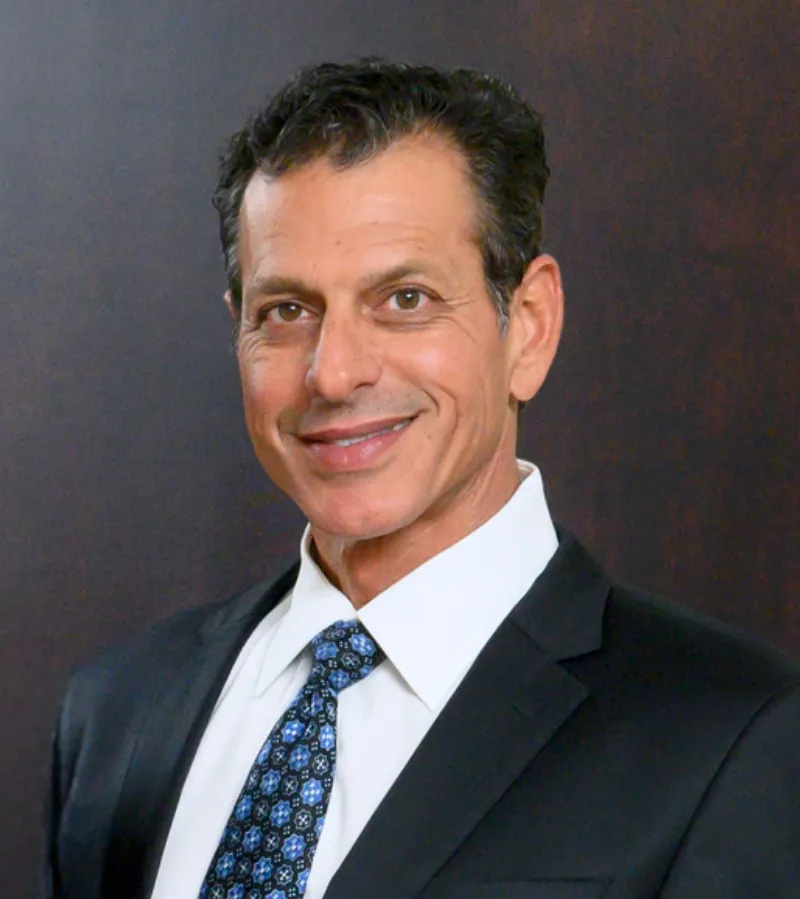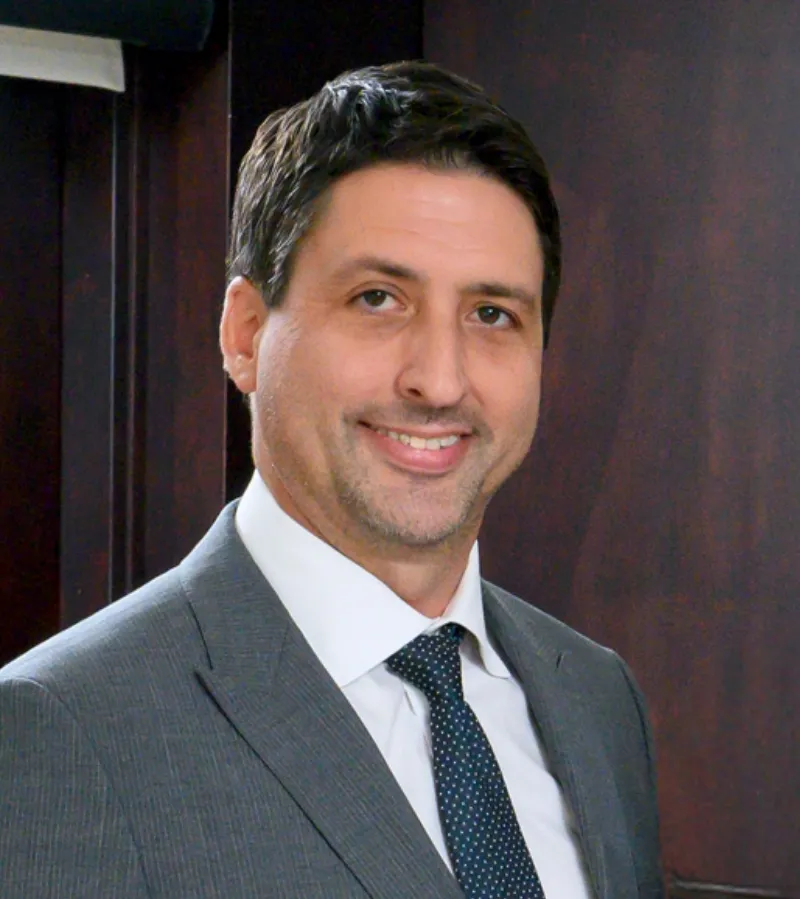As a Tampa personal injury attorney, I realize wrongful death is a devastating and often legally complex situation in which a person dies due to another party’s negligence or wrongful actions. Such losses are felt in nearly every aspect of the lives of those who are left behind. However, the legal system allows certain family members or personal representatives a path towards justice through a wrongful death claim.
In Florida, wrongful death claims are governed by specific laws and regulations. If you have tragically lost a loved one, we understand how difficult this time may be. At Diaco Law, we can help you and your family find a way forward.
Call us today for a free and confidential consultation. We will listen to your story, let you know what your legal options are, and help you fight for justice for your loved one.
Meet Diaco Law Firm’s Wrongful Death Attorneys
Joseph F. Diaco, Jr., Esq.
Founder & Attorney
Joseph F. Diaco, Jr. (Florida Bar No. 65201) is committed to helping injury victims in personal injury claims. Mr. Diaco began building a reputation as an aggressive advocate while litigating complex insurance cases early in his legal career beginning in 1995. For nearly 2 decades, Mr. Diaco has managed thousands of injury claims, deposed hundreds of experts (including doctors), and successfully handled dozens of jury trials.
Daniel S. Diaco, M.D., J.D.
Partner & Attorney
Throughout his career, Dr. Daniel Diaco (Florida Bar No. 127123) has worked as a medical expert evaluating the medical aspects of injury cases. Now, he is able to use his dual degrees in medicine and law and his 25 years of medical experience, education, and training to evaluate both the medical and legal aspects of personal injury and medical malpractice claims. Dr. Diaco has been an aggressive medical advocate for his patients for over two decades.
Scott A. Arthur, Esq.
Partner & Attorney
Scott A. Arthur (Florida Bar No. 15889) joined Diaco Law as a partner in 2020. Previously, Mr. Arthur was a shareholder at Gunn Law Group, P.A., where his practice focused on representing policyholders and the injured in claims against insurance companies, including cases involving disputed insurance coverage and bad faith. Mr. Arthur has jury trial and appellate experience in both state and federal court, and has litigated hundreds of personal injury and insurance cases on behalf of injured victims and Florida policyholders who have been denied fair compensation.
What Constitutes Wrongful Death in Florida?
In Florida, wrongful death is legally defined as a death that results from the wrongful act, negligence, default, or breach of contract or warranty of any person or entity. These acts can include but are not limited to:
- Medical Malpractice: Negligence by healthcare professionals that results in a patient’s death.
- Motor Vehicle Accidents: Fatal accidents caused by another driver’s negligence, such as drunk driving or reckless driving.
- Product Liability: Defective products that lead to fatal injuries or illnesses.
- Workplace Accidents: Fatal accidents occurring on the job due to unsafe conditions or negligence.
- Criminal Acts: Homicides or assaults that result in death.
Who Can File a Wrongful Death Claim in Florida?
In Florida, wrongful death claims can typically be filed by the personal representative of the deceased person’s estate on behalf of the survivors. Survivors who may be eligible to recover damages in a wrongful death case include:
- Spouse: The surviving spouse of the deceased.
- Children: Minor children of the deceased, including adopted children.
- Parents: If no surviving spouse or children exists, the deceased’s parents may be eligible.
- Other Dependent Relatives: Blood relatives or adoptive siblings who were partially or wholly dependent on the deceased for support or services may also be eligible.
Legal Process for Wrongful Death Claims
Filing a wrongful death claim in Florida involves a structured legal process. Understanding this process is crucial for those who believe they have a valid claim:
- Consultation with a wrongful death attorney in Tampa
- Investigation
- Filing the Lawsuit
- Discovery
- Mediation
- Trial
While trial may be necessary, not every case goes to court. However, if the insurance company of the responsible party refuses to deal fairly, you’ll want the guidance from the best wrongful death attorney in Tampa, one who is fully prepared to take a case to trial when necessary.
Wrongful Death vs. Survival Actions: What’s the Difference?
Florida law recognizes both an action for wrongful death and a survival action. Each will be discussed briefly. Remember: these actions differ from each other, but a savvy attorney like our Tampa wrongful death lawyers at Diaco Law can successfully bring both.
By state statute, Florida recognizes that a claim for personal injury does not evaporate because the injured person passes away. These survival actions are exactly the same lawsuit that the deceased person could have brought had he or she not passed away. Without survival actions, bad actors would be rewarded for killing their victims rather than merely injuring them.
A lawsuit for wrongful death is a separate and independent lawsuit created by Florida’s Wrongful Death Act. A wrongful death suit creates an entirely new legal claim in a statutorily designated beneficiary. Further, there are entire categories of damages available to wrongful death plaintiffs as a statutorily designated beneficiary.
Diaco Law Firm Awards & Associations
Damages in Survival Actions and Wrongful Death Claims
In Florida, survival actions and wrongful death claims may result in various types of damages, which can include economic, non-economic, and punitive damages. Each will be discussed below, but not before briefly addressing what damages are and how they work.
Under Florida law, damages are designed to provide fair and just compensation to an injured person in an effort to put the injured person in the same place he or she would have been before they suffered the injury. However, this is ultimately impossible when someone has died as a result of another person’s bad actions, and so the law does what it can to compensate their family members or loved ones.
Economic Damages
In plain English, economic damages are damages that are awarded to a person for injuries that are financial in nature. A plaintiff can receive compensation for the following when bringing a lawsuit:
- Medical Expenses: A person is entitled to compensation for the medical expenditures they made as a result of the injury or death, including medical treatment, hospital services, and nursing care.
- Lost Earnings: Where a survival action is brought, a plaintiff can recover the lost wages from the time of the injury until the decedent’s death.
It makes sense that a wrongful death claim would allow different economic damages since a wrongful death claim differs from a survival action. The Wrongful Death Act authorizes damage awards for:
- the loss of support;
- loss of services; and
- funeral expenses
Non-Economic Damages
Non-economic damages are awarded to compensate a person for losses that are not necessarily financial in nature. The most common form of non-economic damages awarded are damages for the deceased person’s mental anguish and suffering.
In a wrongful death action, Florida law limits the right to recover for noneconomic losses based on who is bringing the wrongful death claim. Generally, a surviving spouse is the only person who can recover damages for the following injuries:
- pain and suffering from the date of the injury;
- loss of companionship; and
- loss of protection.
Punitive Damages
Florida law authorizes a wrongful death claimant to seek punitive damages. Punitive damages are difficult to obtain in any lawsuit, for they require evidence showing that the bad actor’s conduct was either wanton or reckless.
Punitive damages are awarded as a matter of public policy in wrongful death cases. It would be unjust for a bad actor to be subject to punitive damages for malicious or reckless behavior that injures someone but not for that conduct that kills him.

50+ Years Combined ExperienceOver $200 Million RecoveredNo Win, No Fee
Guidance and Advocacy After a Wrongful Death
Helping Families Seek Answers and Accountability
Statute of Limitations
In Florida, wrongful death claims are subject to a statute of limitations, which typically requires filing the claim within two years from the date of death. It’s essential to consult with a Tampa wrongful death attorney from Diaco Law promptly to ensure compliance with this timeframe.
Important Considerations
Several key considerations should be kept in mind when dealing with wrongful death cases in Florida:
- Emotional Impact
- Legal Representation
- Expert Witnesses
- Insurance Coverage
Contact a Tampa Wrongful Death Attorney Today
Wrongful death cases in Florida are emotionally and legally complex. If you believe you have a valid wrongful death claim, it is crucial to consult with a top-rated Tampa wrongful death lawyer who can help you through the legal process and pursue justice on behalf of your loved one.
While nothing can fully compensate for the loss of a loved one, the legal system in Florida is designed to provide survivors with a means to seek accountability and financial support during a challenging time. When facing the death of a loved one, it can feel like the entire world is closing in on you.
In those moments, you need a dedicated Tampa wrongful death attorney like ours at Diaco Law. Call our wrongful death attorneys at Diaco Law at (813) 221-7978, or you can reach our Tampa wrongful death lawyer Diaco Law at our online contact form.






